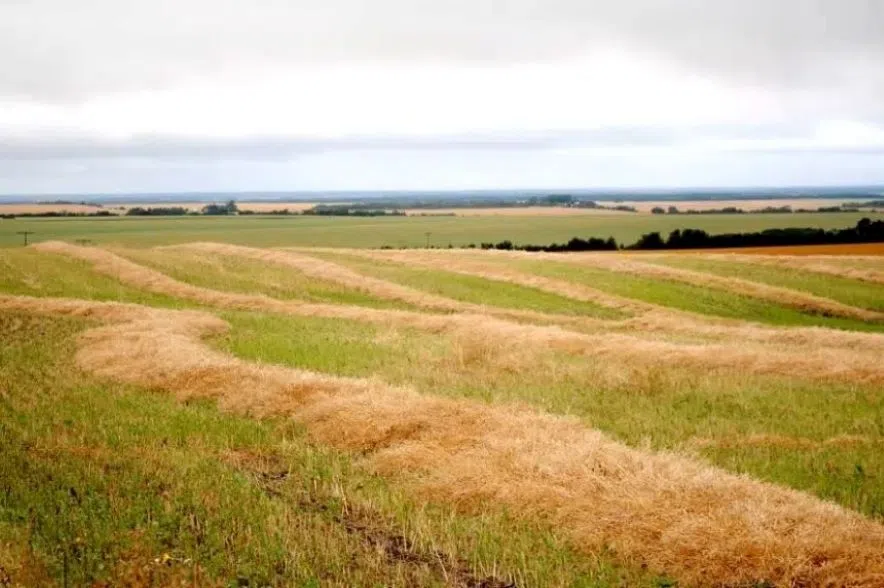Saskatchewan farmers are cautiously optimistic as they look to the future.
They were forced to deal with a drought last year, and now, with a lack of snow and a warmer-than-usual winter, that could be the case again.
But Ian Boxall — the president of the Agricultural Producers Association of Saskatchewan (APAS) — says optimism is running high.
“Farmers are always optimistic as we go into the new growing season. Did we get enough snow? Did we have enough moisture? We could use some more in areas,” Boxall told Evan Bray Show guest host Taylor MacPherson on Monday.
“I was happy to see that a majority of the province got a blanket of snow a few weeks ago, so I think we’re optimistic going into the season.”
He said livestock producers were hit the hardest last year due to a lack of feed and water.
“In livestock production, those were the two biggest issues we saw, and a lot of where that production takes place is in the southwest and west-central parts of the province, and they’ve been really hit for the last number of years — five or six years — with drought,” said Boxall.
“Let’s hope that they get the hay and the water that they need to ensure that the livestock sector thrives.”
Recently, the provincial government announced its 2024-25 budget. Within that budget was close to $24 million for risk management programs like crop insurance and Agri-Stability.
Boxall said he appreciates the help from both the federal and provincial governments but said ultimately things are out of their hands.
“At the end of the day, Mother Nature is the biggest driving factor when it comes to production, so let’s hope she agrees with us this year and we get what we need,” said Boxall.
On top of contending with the weather, farmers now have to deal with an increase to the carbon tax scheduled for April 1.
“It’s a big hit,” Boxall said. “You talk about a 20 per cent increase in carbon tax, that is a big hit. And it’s not only on the things that we see — our gas bills (and) our fuel — but it’s on nitrogen production.
“It’s on every single part we buy (and) every piece of equipment. Every single thing that is trucked in for us to buy has carbon tax on it. And then we turn around and we ship our grain out, and there’s carbon tax on the rail freight and the carbon tax on the custom trucking. There is carbon tax on every aspect of our business and yet we are the only sector that absorbs all of that and can’t pass any of that along.”
When it comes to the good news this year, the provincial government is making some advancements in its Lake Diefenbaker Irrigation Project, which will affect about 90,000 acres of farmland.
“I think it’s a great investment by the government to ensure that production issues based off moisture don’t happen in those areas,” Boxall said. “If we have the infrastructure and we have the ability to do it, let’s get it done. That’s a benefit to Saskatchewan, that’s a benefit to those producers and, in the end, it’ll be a positive for the province.”
As for the hopes of farmers, Boxall said it’s best to hope for the best but prepare for the worst.
“Let’s hope Mother Nature co-operates with us this year and we get the crop that we need and the world wants,” he said.











